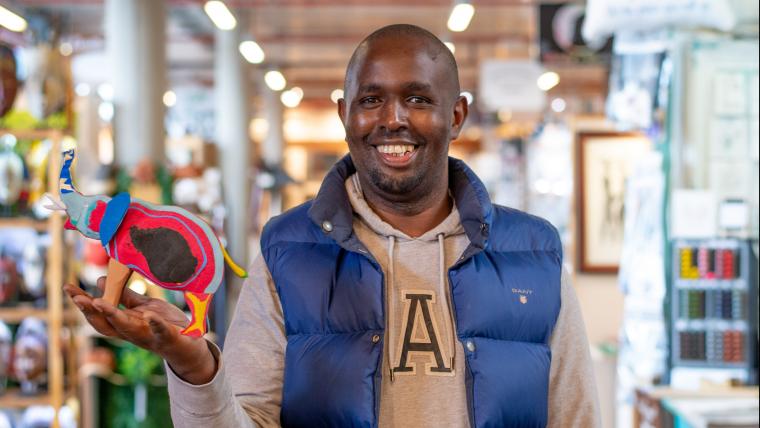
Living Madiba’s legacy through dance
Kitty Phetla has spent her life searching for something that doesn’t exist. Perfection: the constant stress of every ballerina. Her form is serene to the onlooker, but each movement affords her only flickers of satisfaction. Contentment remains elusive. This is the brutal beauty of classical dance. Without favour, it rejects the weak – and talent isn’t enough. The result is best described as exquisite beauty. Elegant strength.
Phetla is the lead soloist for the Joburg Ballet. She still wonders at how it all happened for her. Born to a family in Soweto in 1983, dance wasn’t an interest as a child. A self-proclaimed tomboy, Phetla mimicked her brothers’ every move. When offered the choice of karate or ballet as an extramural activity at school she opted for the latter to challenge herself. Tall and firm in build, Phetla did not match the typical profile for a dancer. But choreographer and teacher Martin Schönberg recognised her potential, choosing her from a group of 60 children and igniting a partnership that would last a decade and launch her career. Phetla rose at every occasion, confronting the westernised narrative of her craft with each new success.
In the climax to a journey intertwined with South Africa’s political situation, Phetla toured Russia as the first black dancer to embody the famous Dying Swan on stage. Her performance threw a defiant gaze over the past, and opened a proud new chapter for African artists. By special request, Phetla was given the honour of showing her swan to Nelson Mandela. The moment was the most important of her life, as she offered a gift to the man who inspired the country to oppose the narrow boundaries enclosing it and take more from life. Today honoured alongside Madiba through her feature in 21 Icons, Phetla lives his legacy through dance.






























Please sign in to leave a comment